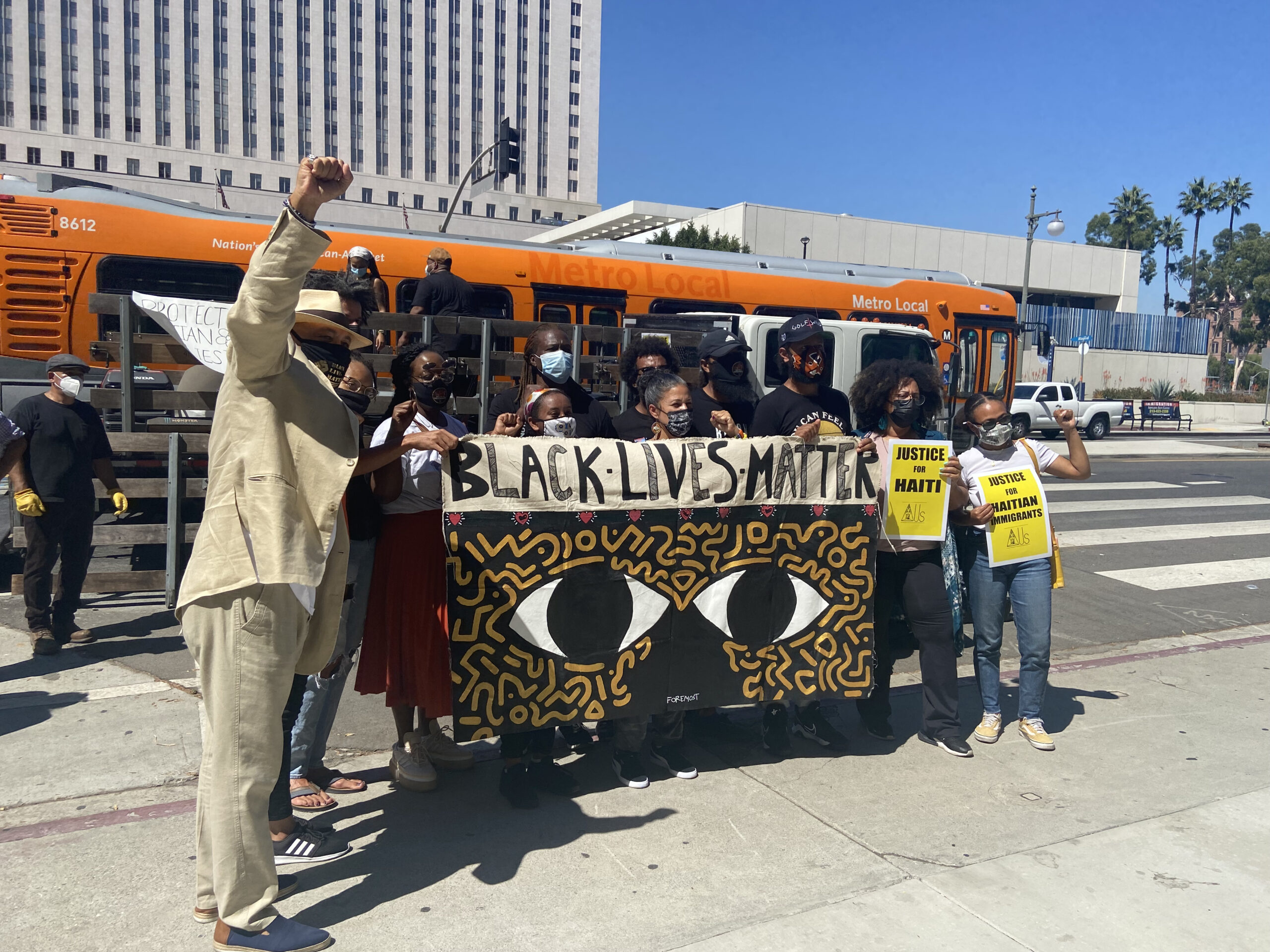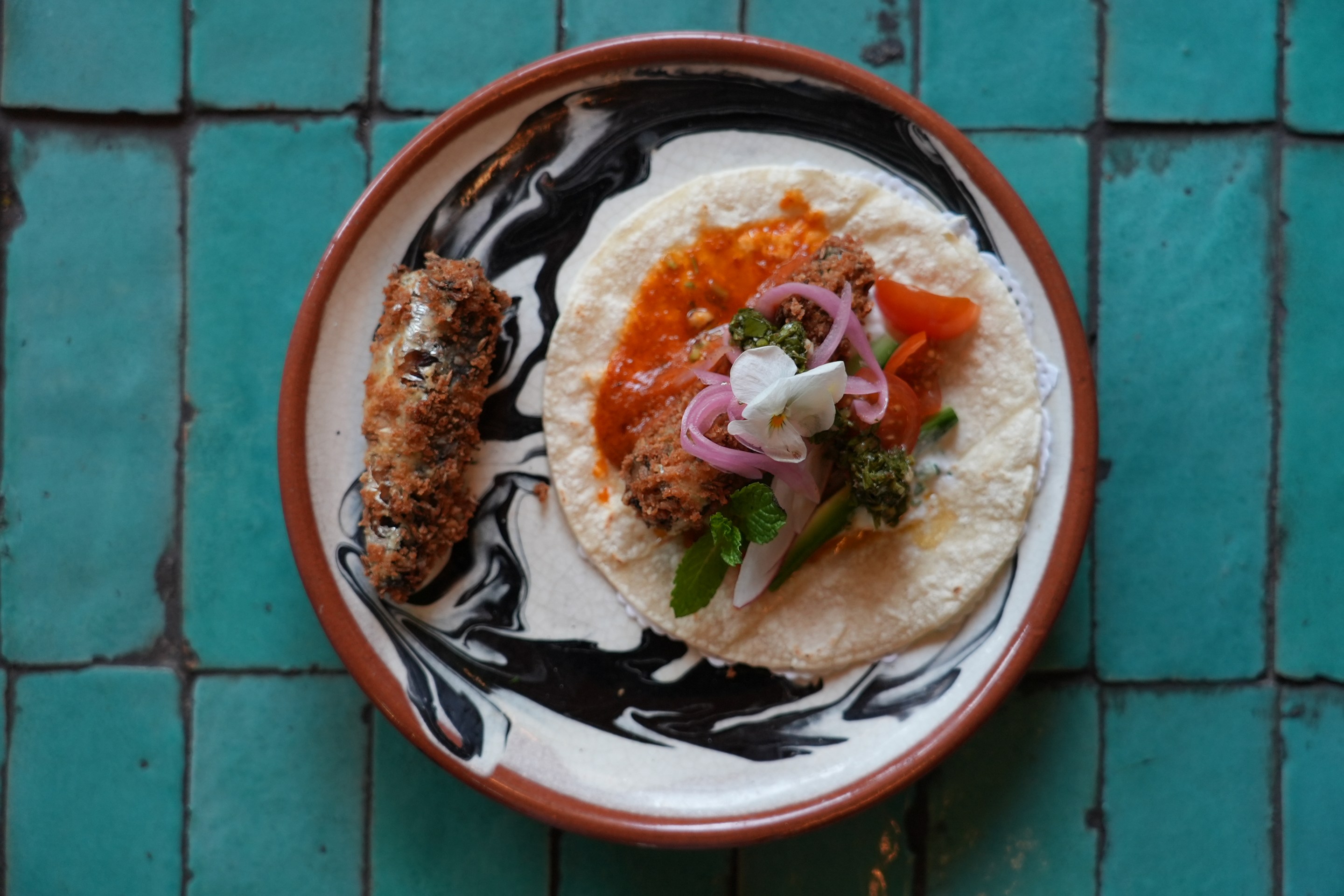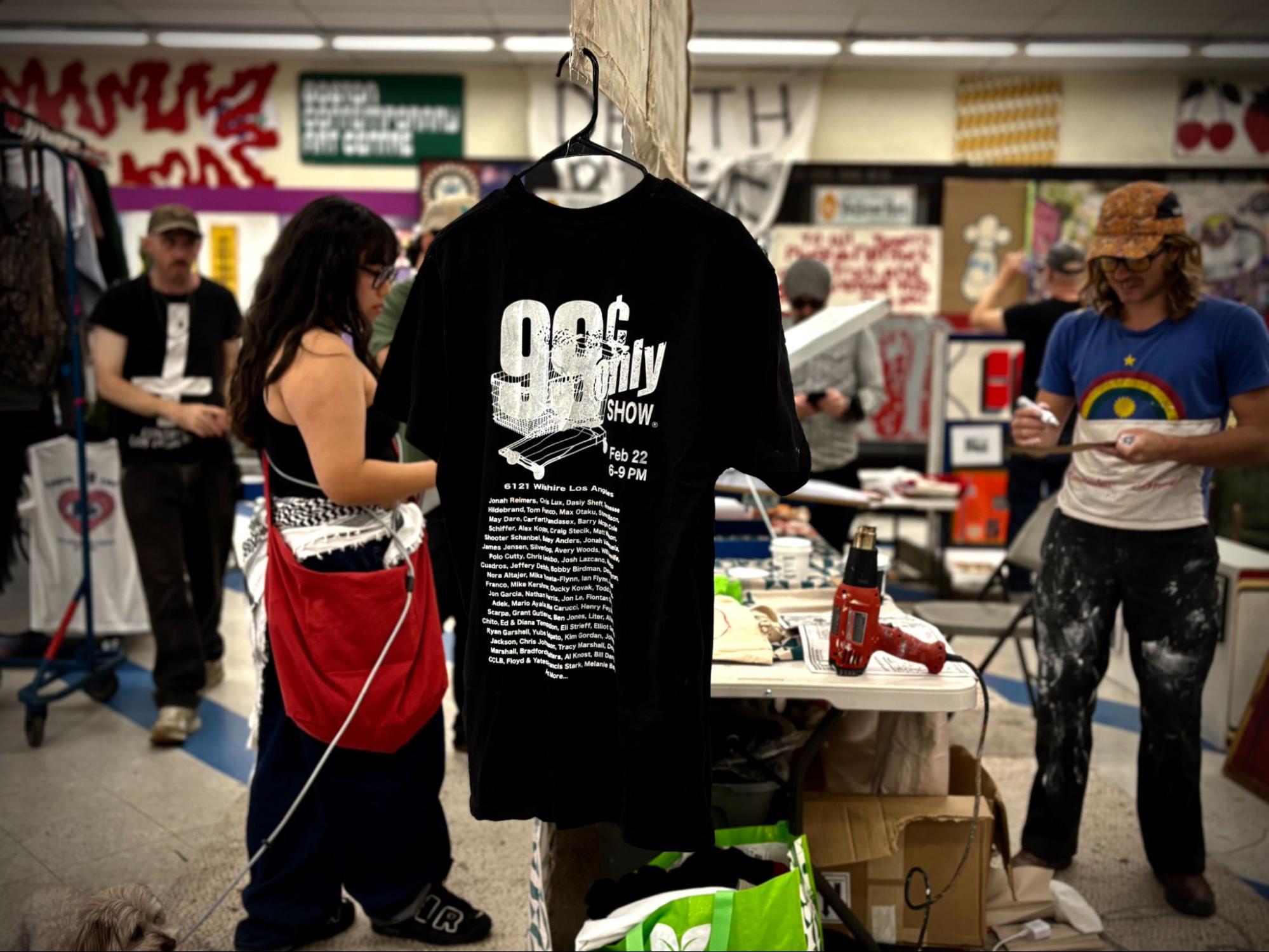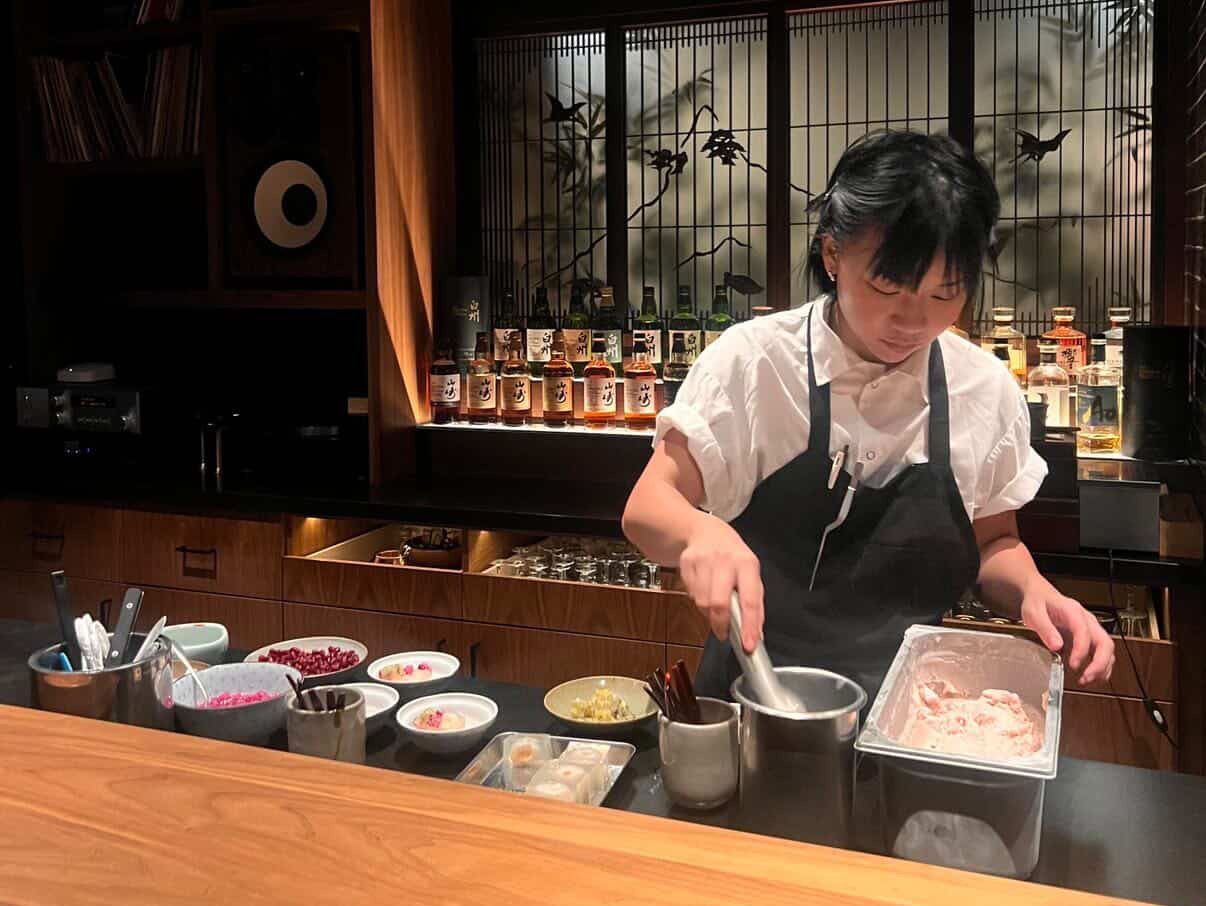[dropcap size=big]L[/dropcap]OS ANGELES- Under the forever hot downtown Los Angeles sun, a coalition of Black organizations and immigrant-led groups decades in the making came together to stand up for Haitian immigrants at the Mexican border after photos circulated internationally of Border Patrol agents whipping and corralling Black Haitian refugees at the border.
Led by the Black Alliance for Just Immigration (BAJI) and supported by Black Lives Matter Los Angeles, SEIU 721, CHIRLA, The Council on American-Islamic Relations (CAIR), the Los Angeles Black Worker Center, Little Tokyo’s Nikkei Progressives, and many more- the press conference, like many actions in Los Angeles, turned into a rally where community members showed up to chant, cry and embrace each other with one goal, give light to the work ahead to stand up for Haitians at the border and overall struggle to make known the immigration is a Black issue too.
“We want the Biden administration to immediately grant humanitarian parole to all Black asylum seekers at the border. We want the Biden administration to stop expelling and deporting Haitian immediately and other Black asylum seekers and immediately revoke the racist Title 42 order and immediately end the metering system that is being used to process asylum seekers at the U.S-Mexico border” Maraky Alemseged, the Los Angeles organizer for the Black Alliance for Just Immigration tells me on Wednesday after spending the last 24 hours following up with the coalition after the press conference on Tuesday.
Born to two immigrant Ethiopian political rebels, Maraky grew up in Los Angeles, always knowing that the work towards freedom was an international struggle. “When I was a child, their organizing work continued to organize issues affecting Ethiopia...I can remember constantly going to the embassy, and my Mother, who was a caterer, constantly catered food for political, organizational meetings. They’re both still part of that organizing.”
“I learned from watching them care for their community and be of service to their community on how to do that for my own community.”
The Historian Dr. April Mayes, who manages projects in Haiti and the Dominican Republic and studies migration patterns into the US at Pomona College, tells me in both excitement and urgency that the work to support and empower Black immigrants has always been an international struggle. “This has, of course, happened before!” Mayes, the historian, laughs when she says this.
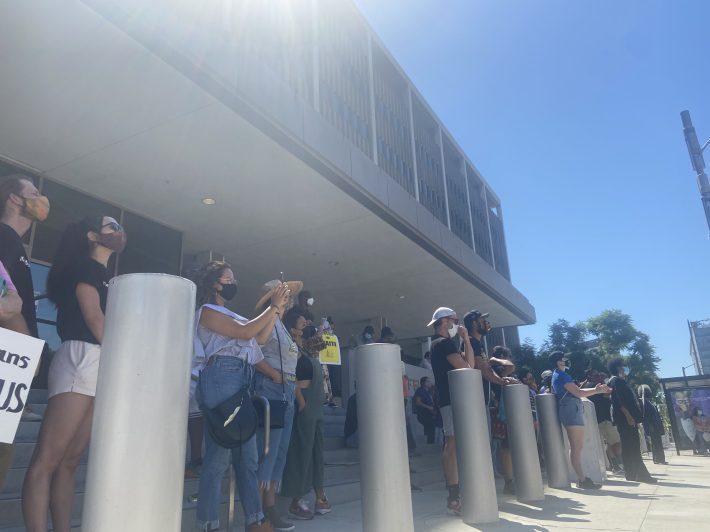
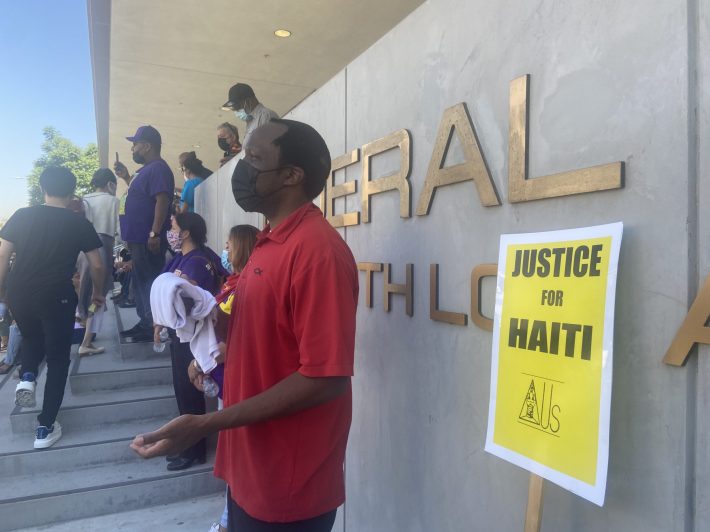
As the latest reporting has pointed out, the treatment of Haitians at the border this week resulted from a bottleneck of actions that Biden inherited from the Trump to the Obama administrations. On Tuesday, the rally and press conference had speakers discuss this in length through testimonials, poetry, and popular education and referred to the current administration as the direct people responsible. While the organizations like SEIU and Blac Lives Matter LA appeared on the stage together organically, organizers tell me that the work to make that possible was the result of endless conversations and time.
“Los Angeles has been ground zero in terms of support for the movement for Black Lives from labor,” Felipe Caceres, a coordinator with SEIU Local 721, which represents public service workers, tells me over the phone as we debrief the action on Tuesday and discuss how non-Black workers showed up in support of Black immigrants. “A lot of our members were working hand in glove with BLM on other things, so after seeing these visuals [from the border this week], the Latino and Black caucus came together and decided that Los Angeles is ground zero for us to show our support for Black and brown organizations leading the way for not only a pathway for 11 million undocumented people but also for asylum seekers.”
Professor Mayes hopes that people understand that this solidarity work is not new but that the potential is still special and important. “We often don’t think of Haitians as Latin Americans, and that too is part of how they remain visible and invisible when we talk about the Americas themselves.”
She points out that the Haitian Bridge Alliance, which she is the treasurer for, didn’t get any attention until recently for their work to support Black migrants. Mayes asserts that the issues affecting Haitian immigrants over the last few years “weren’t seen as Latine people with Latine problems.”
When L.A. TACO brought up the details about the rally on Tuesday, she made an emphasis on not relying on the idea of Los Angeles being a place where this solidarity is entitled or given, “it’s work, it’s work in Los Angeles, it’s work in Miami, it’s work in Orlando, it’s work in Boston.”
“Can we recall some older arguments, though?” She tells me as I try and dig deeper into what solidarity even means now in 20201.
“What would it be like to bring [the] empire back into the conversation?” Maye is asking here for a closer look at how multiple countries contribute to the result of what we saw at the border.
“What unites all of us isn’t the fact that we all immigrants, some of us are captive, some of us weren’t voluntarily brought here. Some of us were already indigenous to this space.”
“What brings us together is our position in a structure that is built upon, land appropriation, resource extraction, labor exploitation, and the enclosure of our communities so that all of the above three can run smoothly.”
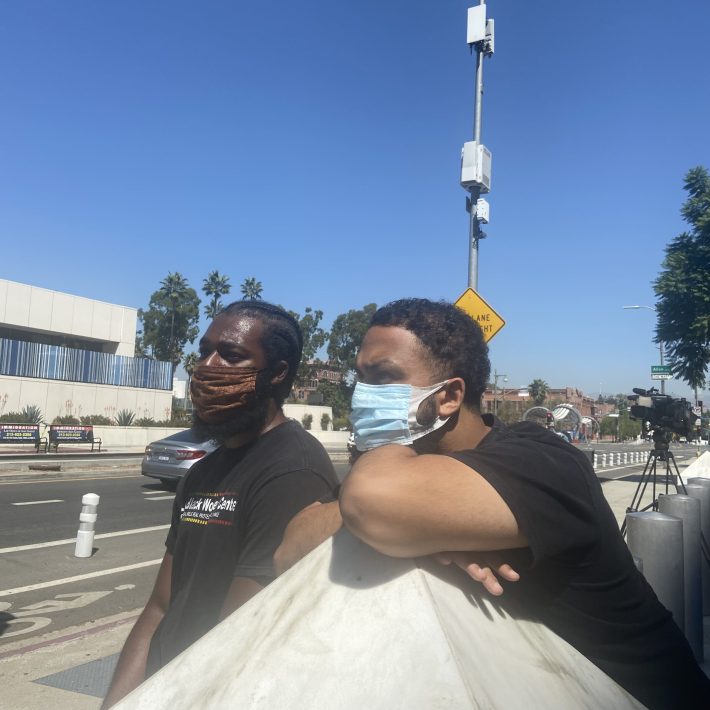
Jeremiah & Zachary from the Black Worker Center at the BAJI Press Conference
Organizers are set to demonstrate in front of the Mexican Consulate, signaling a second country responsible, Mexico. “We don’t want to deflect from the U.S government, but we also want the Mexican government to be held accountable,” Maraky stops for a breath when she tells me this—echoing Dr. Mayes’ urgency for the community to understand what and who is responsible.
This week marks both the end of summer and the start of the fall season, signifying a change in both the wind and history. “It needs to be consistent. It needs to be more,” Maraky emphasizes as we discuss the growth in the solidarity work happening at the moment. “Until the most marginalized and the most vulnerable, of the least privileged are free and are being fought for, no one else will be free.”
